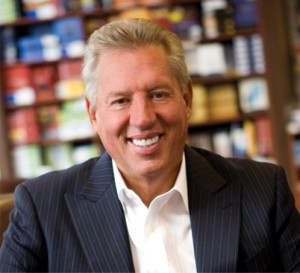I sat with Steve in his backyard one afternoon and asked the guru: If you could choose just one of the seven habits, which one meant the most to him personally after 30 years of teaching this stuff? It was a rare moment to see him because he was still globe-trotting in his late 70s and kept an outrageous schedule. He invited Bonita Thompson and I to his serene French Provincial-style home overlooking Provo, Utah, where we talked privately about his busy life with the unusual perspective that comes from sitting in the Zen-like setting of his backyard terrace.
“If you focused on one thing, it should be the ‘foundation habit’ —being proactive about just the few things that matter. It’s the habit upon which all the others are based,” he mused. “Cut your priorities down to a few good things that mean the most. You can have it all, but not all at once!” Covey said there is a big difference between giving your attention only to urgent matters that compete for your mindshare and the more important things that will help you prosper in the long term. Our primal brain is easily seduced by fight-or-flight urges, which means that anything that feels like a crisis—and does NOT require deep thought—ironically will be given highest priority.
Covey believes that’s backwards. Unless you’re being chased by a saber tooth tiger, it’s likely that you will benefit from stopping to distinguish between “fire drills” and other issues that would have a longer term impact on your work. In other words, you may have to address certain pressing matters in the next hour, but think about what you need to do this week to invest in your long-term work and life objectives and carve out some time for that too. Covey cautions us against compiling massive to-do lists without first taking a serious reality check.
Bonita and I had come to Provo to see him for insights on a new book we’re releasing this fall called Admired: 21 Ways to Double Your Value. We did a national study with help of researchers at Stanford and Northwestern looking at how to be admired as a leader—not for just anything—but for something that matters over the long term. Covey smiled and winked, “If you just had a short time to live, what one thing would you like to be respected, admired and valued for? Be proactive about that.”




